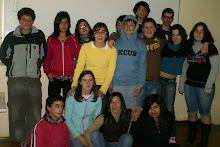(26th March) British summer time begins
This is a system of daylight saving in the UK, so we put our clocks forward by one hour.
(16th April) Easter
Today’s Easter celebrations in the UK are a combination of Christian and Pagan beliefs and traditions. Eggs are the most identifiable symbol of Easter and are largely given as chocolate treats.
(1st April) April Fool’s Day
April Fools Day is a day for playing practical jokes. Even newspapers and TV news programmes can contain joke news items.
23rd April) St George’s Day
This is a day when we remember St George (the patron saint for England). St George is popularly identified with the ideals of honour, bravery and gallantry.
(1st May) May Day
May Day marks the time of year when warmer weather is expected to begin, flowers and trees start to blossom, and people celebrate the beginning of summer.
(11th June) Trooping the Colour
Although the Queen’s actual birthday is in April, this date has marked the sovereign’s official birthday for centuries. British guardsmen parade their colours and march from Buckingham Palace to Whitehall and back again.
(18th June) Father’s Day
Father’s Day is a special day for people to give presents and cards to say thank you to their fathers.
(21st June) Longest day of the year
On the longest day of the year, the sun is at its most northerly point, which means that Britain has the longest period between the sun rising and setting.
September Harvest Festival
Harvest Festivals are held in churches at the end of the summer to celebrate bringing in the crops. Churches are decorated with baskets of locally produced fruit and food.
(30th October) British summer time ends
On 30 October this year, as at the end of October every year, we put our clocks back by one hour.
(31st October) Halloween
Halloween is a time for people to dress up in scary costumes for parties. Children sometimes go from house to house ‘trick-or-treating’ in frightening costumes to try to scare householders into giving them sweets and treats.
(5th November) Bonfire Night
Bonfire night is a time for bonfire parties and firework displays.(11th November) Armistice Day/Remembrance Day
Armistice Day is held to commemorate the end of the First World War. The second Sunday of November is also a commemorative day known as Remembrance Day as people hold a two-minute silence across the UK to remember those who have died in wars.
(25th December) Christmas Day
Christmas Day is the most important public holiday in the UK. Traditionally people send cards to one another and buy presents for family members and close friends. Most people spend Christmas Day with their family.
(26th December) Boxing Day
Like Christmas, this is a national holiday in the UK and most people enjoy spending the time with their family.



